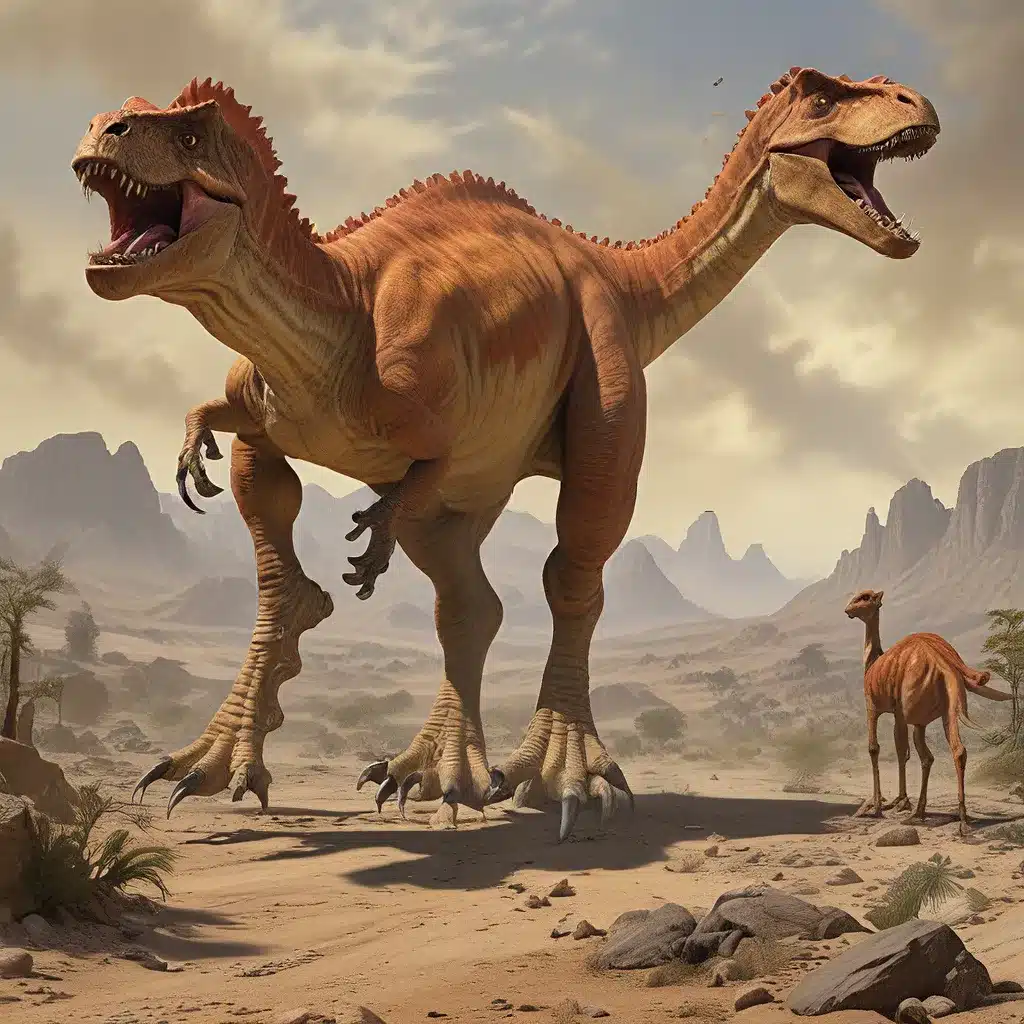
The Cretaceous period, spanning from 145 million to 66 million years ago, was a time of extraordinary diversity and dominance for dinosaurs. During this epoch, the Earth witnessed the rise and fall of some of the most magnificent and enigmatic creatures to ever roam the planet. From the towering Tyrannosaurus rex to the graceful Brontosaurus, these ancient reptiles left an indelible mark on the fossil record, captivating the imagination of scientists and the public alike.
Uncovering the Mysteries of Dinosaur Civilizations
The archaeological study of dinosaurs has been a long and arduous journey, filled with groundbreaking discoveries and persistent mysteries. Paleontologists have meticulously pieced together the evolutionary history of these prehistoric beasts, revealing their adaptation to diverse environments and their complex social structures. Through the careful examination of fossilized remains, researchers have gained unprecedented insights into the daily lives and behavior of dinosaurs, painting a vivid picture of their once-thriving civilizations.
One of the most significant discoveries in recent years has been the unearthing of dinosaur nesting sites. These archeological treasures have provided a glimpse into the parental care and social dynamics of various dinosaur species, challenging long-held assumptions about their solitary nature. The discovery of fossilized dinosaur eggs and hatchlings has shed light on the reproductive strategies of these ancient creatures, opening new avenues of research into their evolutionary adaptations.
The Reign of the Tyrannosaurs
Among the most iconic and feared dinosaurs of the Cretaceous period was the Tyrannosaurus rex, a colossal predator that dominated the ecosystem of North America. Weighing in at over 7 tons and standing 12 feet tall, the T. rex was a formidable hunter, equipped with serrated teeth and powerful jaws capable of crushing bones.
Recent archaeological findings have challenged the traditional understanding of the T. rex’s hunting behavior. Analyses of fossilized bite marks and skeletal injuries suggest that these apex predators may have engaged in cannibalistic behavior, feeding on smaller tyrannosaurs and competing for resources. This discovery has profound implications for our understanding of the social dynamics and ecological role of the T. rex within its environment.
The Decline and Extinction of Dinosaurs
Despite their dominance and longevity, the Cretaceous dinosaurs were ultimately doomed to extinction. The causes of their demise have been the subject of intense scientific debate, with multiple theories proposed to explain this momentous event.
One of the most widely accepted theories is the Cretaceous–Paleogene extinction event, also known as the K-T extinction. This catastrophic event is believed to have been triggered by the impact of a massive asteroid or comet, which devastated the global ecosystem and led to the extinction of numerous species, including the non-avian dinosaurs.
The discovery of the Chicxulub crater in Mexico, which dates back to the end of the Cretaceous period, has provided strong evidence to support this theory. Geological analyses of the crater and surrounding sediments have revealed signs of a massive impact event, including high concentrations of the rare metal iridium, which is typically associated with extraterrestrial materials.
The Enduring Legacy of Dinosaurs
Despite their ultimate demise, the legacy of dinosaurs lives on. Countless fossils and archaeological discoveries have enriched our understanding of these magnificent creatures, shedding light on their evolution, behavior, and adaptation to the ever-changing environment of the Cretaceous world.
Today, dinosaurs continue to captivate the public imagination, inspiring awe and curiosity in people of all ages. From blockbuster movies to museum exhibits, the enduring fascination with these prehistoric giants reflects their enduring impact on the human psyche and our collective understanding of the natural world.
As new discoveries continue to unfold and scientific theories evolve, the Cretaceous Chronicles remain a captivating testament to the power and resilience of life on Earth. The rise and fall of dinosaur empires offer a profound perspective on the dynamic nature of our planet, reminding us of the fragility and adaptability of all living organisms in the face of environmental change.
The Lost Kingdoms is dedicated to exploring the mysteries and wonders of the ancient world, uncovering the untold stories of civilizations long forgotten. Join us as we embark on a journey through time, unearthing the secrets of the past and celebrating the enduring legacy of dinosaurs and their indelible mark on the history of our planet.


